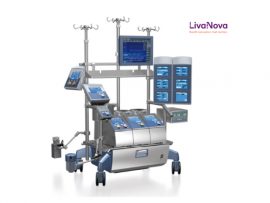Abstract Extracorporeal membrane oxygenation (ECMO) is a life-saving intervention for patients with circulatory and/or pulmonary failure; however, the rate of complications remains high. ECMO induces systemic inflammation, which may activate..
Read MoreAbstract Since its introduction, the number of heart surgeries has risen continuously. It is a high-risk procedure, usually involving cardiopulmonary bypass, which is associated with an inflammatory reaction that can..
Read MoreAbstract The endothelial glycocalyx (EGC) is a layer of proteoglycans (associated with glycosaminoglycans) and glycoproteins, which adsorbs plasma proteins on the luminal surface of endothelial cells. Its main function is..
Read MoreAbstract Bacground Off-pump coronary artery bypass graft (OPCABG) has a high incidence of postoperative systemic inflammation response syndrome (SIRS), and perioperative endothelial glycocalyx layer (EGL) disruption can be one of..
Read MoreAbstract Background Cardiopulmonary bypass (CPB) leads to shedding of the glycocalyx of endothelial cells, resulting in a series of complications such as tissue edema and coagulatory and microcirculatory dysfunctions. Matrix..
Read MoreAbstract Objectives: Cardiopulmonary bypass surgery is complicated by metabolic acidosis, microvascular dysfunction, and capillary leak. The glycocalyx—a layer of proteins and sugars lining the vascular endothelium—is degraded during cardiopulmonary bypass...
Read MoreAbstract Objective induces degradation of . The authors hypothesized that inflammation is an important determinant of glycocalyx degradation in patients undergoing cardiac surgery with (CPB). Design A prospective . Setting Operation theater and..
Read MoreMicrovascular Alterations During Cardiac Surgery Using a Heparin or Phosphorylcholine-Coated Circuit
Abstract Objective Heparin biocompatible coating frequently is used to reduce inflammation and blood coagulation during cardiopulmonary bypass (CPB) in cardiac surgery. Whether heparin coating is protective or damaging to the..
Read MoreAbstract Vascular hyperpermeability is a frequent intractable feature involved in a wide range of diseases in the intensive care unit. The glycocalyx (GCX) seemingly plays a key role to control..
Read More







